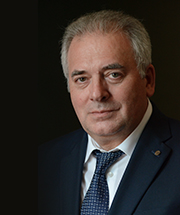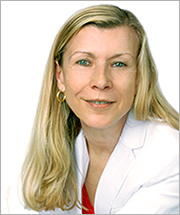21th World Congress of WADP
XXXIVth International Symposium of German Academy for Psychoanalysis (DAP) e. V.
22.03.-26.03.2027 | University of Vienna
Identity: Person, Group, Society – Implications for Psychotherapy and Psychiatry
Dear colleagues and friends,
 dynamic psychiatry as a holistic approach to understanding mental health and illness has always emphasized the importance of the group, the partnership approach, the shared decision-making, the involvement of the patients not only in therapy, but also in the mutual spiritual social-energetic exchange in its scientific research and daily clinical practice. It is with great pleasure that we observe that after several decades of our putting in effort and hard work, these ideas have become widely recognized. This is evidenced by the fact that the WPA, of which the WADP has been an affiliated member for many years, published an article in one of its most recent issues on the “lived experience of psychosis”. This article is the first review of this disorder that is co-written by patients, as experts by experience, and academics, as professionals respected around the world. We have always made it a point to provide our patients with the opportunity to be a part of our world congress, and I very much hope that it will be a valuable contribution to the program this time, as well.
dynamic psychiatry as a holistic approach to understanding mental health and illness has always emphasized the importance of the group, the partnership approach, the shared decision-making, the involvement of the patients not only in therapy, but also in the mutual spiritual social-energetic exchange in its scientific research and daily clinical practice. It is with great pleasure that we observe that after several decades of our putting in effort and hard work, these ideas have become widely recognized. This is evidenced by the fact that the WPA, of which the WADP has been an affiliated member for many years, published an article in one of its most recent issues on the “lived experience of psychosis”. This article is the first review of this disorder that is co-written by patients, as experts by experience, and academics, as professionals respected around the world. We have always made it a point to provide our patients with the opportunity to be a part of our world congress, and I very much hope that it will be a valuable contribution to the program this time, as well.
More recently, a new paradigm has been gradually emerging: the healthcare ecosystem. It encompasses four main dimensions: the places and communities in which we live; a broad set of demographic and wider social variables; health lifestyles; and the provision of healthcare. We also observe the appearance of new terms like ‘public health exposome’ or ‘envirome’. The body of research focused on bridging the knowledge gap between basic sciences and the real world and on understanding that the biological mechanisms of the psychosocial factors have an impact on health and resilience is constantly growing. The provision of a facilitating environment for mental patients is considered to be a new evidence-based challenge for mental-health specialists. As Günter Ammon postulated: Man fell ill in groups and needed a set of groups in the treatment system to recover. Dynamic psychiatry, as a person-centered humanistic approach with a deep multidimensional understanding of the group dynamics at different levels, including not only families but big social groups and societies, can be considered the most demanded approach to facing the social challenges of our time.
Nevertheless, social issues such as stigmatization, discrimination, and social exclusion continue to be a serious problem for mental healthcare. The dynamic of the environment in which we live is complicated, and we need to combine our efforts to tackle these problems. The congress will offer a place for fruitful exchange and a platform to create and establish networks, collaborations and partnerships.
“No man is an island, entire of itself”, John Donne wrote, meaning that the world in which we live is our shared responsibility. I expect that the congress will be a place to exchange practical experiences and scientific innovations – an exchange that will target a gap in mental health services. It will provide empowerment through an understanding of the phenomena of unconscious group dynamics in society. My hope is that it will galvanize existing efforts at building a more inclusive world and better mental healthcare systems all over the world.
Looking very much forward meeting you in Marrakech!
Professor Nikolaj G. Neznanov
President World Association for Dynamic Psychiatry
Dear colleagues and friends,
 it is my great pleasure to announce the 20th World Congress of WADP and the 33rd International Symposium of the German Academy for Psychoanalysis in Marrakech. We are very happy to have the opportunity to come together, especially after the last conference “Peace and Aggression – a Social Challenge for Psychiatry and Psychotherapy” had to be cancelled due to the Corona pandemic.
it is my great pleasure to announce the 20th World Congress of WADP and the 33rd International Symposium of the German Academy for Psychoanalysis in Marrakech. We are very happy to have the opportunity to come together, especially after the last conference “Peace and Aggression – a Social Challenge for Psychiatry and Psychotherapy” had to be cancelled due to the Corona pandemic.
The upcoming conference will address the problems and challenges we are facing: The spread of new pandemics, wars, the climate crisis, famines, forced displacementand migration, the increasing division in the world between the rich and the poor, and many other topics.
We will be focusing on the conflicts and problems experienced by various societal, professional and social groups, both internally and in their interactions with each other. In delineating them and reflecting on them, we will come to an understanding of the conflict resolution processes applied and the outcomes they have achieved.
In this context, it is of utmost importance, in our view, to avoid narratives underpinned by a friend-or-foe dichotomy and destructive scapegoat dynamics – instead, we should accept responsibility, together, for resolving the issues we encounter in our lives as humans.
Günter Ammon called for us to have “… the possibility to change social conditions within the scope of our strengths and in solidarity with others” in 1986, a sentiment echoed more than thirty years later by Ralf Fücks writing in Der Tagesspiegel daily newspaper in 2018: “Especially in times of turbulent change, in which old professional and cultural certainties are dissolving, there is a growing need for a community based on solidarity.”
This is the motivation for the World Congress to focus on the issues listed above and to search for shared solutions. Psychotherapy, psychoanalysis, group analysis, and in fact all psychiatric approaches to healing are treatment sciences that show how to come to terms with conflicts and to counteract de-humanizing emotional and social divisions.
The most recent insights gained by scientific research into the brain’s physiology indicate that we as humans are meant to communicate and to be in contact with one another. Consequently, this means that later destructive developments, conflicts in interpersonal contact, and divisive mechanisms have their origins in attachment disorders, traumatization, as well as in the destructive and deficientinfluences of the surrounding group. It also means that constructive and creative experiences aimed at the resolution of conflicts are able to make people whole and promote peace. Only in this way will we be able to resolve the huge social problems we are facing.
This has direct bearing on the way we see the psychiatric and psychotherapeutic treatment we provide and how we deal with our patients.
In this context, taking on shared responsibility for our patients means taking a clear stance and searching for innovative solutions that will make the world a place worth living in, seen both from the individual perspective and as a whole.
Accordingly, the intention is to highlight, as the major topics of the World Congress, the background against which the processes of conflict arisal and conflict resolution play out, as well as the overall context in which they do so; dealing with fear of contact and interpersonal threats; the development of a capacity for peace; solidarity; identity; and group cohesion.
We hope that the encounter between researchers and scientists from various disciplines such as medicine, psychiatry, psychology, psychoanalysis, and psychotherapy will be able to promote the integration of interdisciplinary research. The findings obtained together, in this interdisciplinary way, by sociology, philosophy, pedagogy, cultural anthropology and others certainly will enhance the research in these fields and the discourse on the topics concerned. We believe these contributions from the humanities to the 2024 WADP World Congress will allow the specific problems associated with the social challenges we will need to overcome to be perceived, consolidated and addressed in the best interests of our patients.
At this juncture, we would like to thank the following international organizations for their support:
WPA World Psychiatric Association, WASP World Association for Social Psychiatry, WFMH World Federation for Mental Health, IFP International Federation for Psychotherapy, ICPCM International College for Person Centered Medicine, DGG Deutsche Gesellschaft für Gruppendynamik und Gruppenpsychotherapie and IFE Fromm International Foundation Erich Fromm.
We greatly look forward to welcoming you in Marrakech!
Professor Maria Ammon
President German Academy for Psychoanalysis
General Secretary World Association for Dynamic Psychiatry
Die Teilnahme an dem Kongreß wird von der Bayerischen Ärzte- und der Bayerischen Psychotherapeutenkammer für die Aus- und Weiterbildung anerkannt. Fortbildungspunkte werden für alle Veranstaltungen bei den Kammern beantragt.
Die Deutsche Akademie für Psychoanalyse (DAP) veranstaltet seit über 30 Jahren internationale Symposien. Seit der Gründung der World Association for Dynamic Psychiatry (WADP) werden gemeinsam mit dieser in enger Zusammenarbeit internationale Kongresse veranstaltet. WADP und DAP arbeiten seit vielen Jahren an einer Konzeption, welche Psychoanalyse und Psychiatrie verbindet. Auch schwerste psychische Erkrankungen werden einem zwischenmenschlichen Verständnis in ihren Entstehungsbedingungen zugänglich und durch erweiterte Konzepte behandelbar.
Die WADP ist affiliiertes Mitglied der „World Psychiatric Association WPA“, Mitglied mit Sitz und Stimme als non-governmental Organisation bei „UNO for Population Activities“ und des „WHO Committee on Water and Food Supply for the World“. Die DAP ist Mitglied der „World Federation for Mental Health“, der „Internationalen Gesellschaft für Ärztliche Psychotherapie“, der „World Association for Dynamic Psychiatry (WADP)“ und der „World Association for Social Psychiatry“.
Informationen:
Anmeldung:
Hier können Sie die Anmeldung
als Redner oder Teilnehmer
herunterladen.
Mehr Informationen rund um den Kongress finden Sie auf der WADP Internetseite unter www.wadpinternational.com.
Kongresse der WADP
Eine Übersicht über die bisherigen Kongresse der WADP finden Sie auf der einschlägigen → Kongress-Seite.

